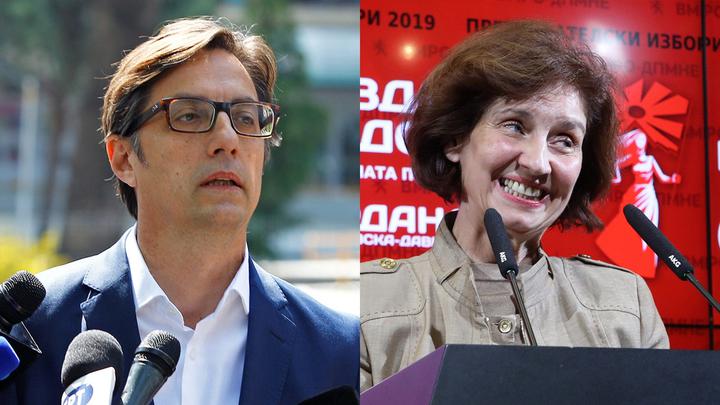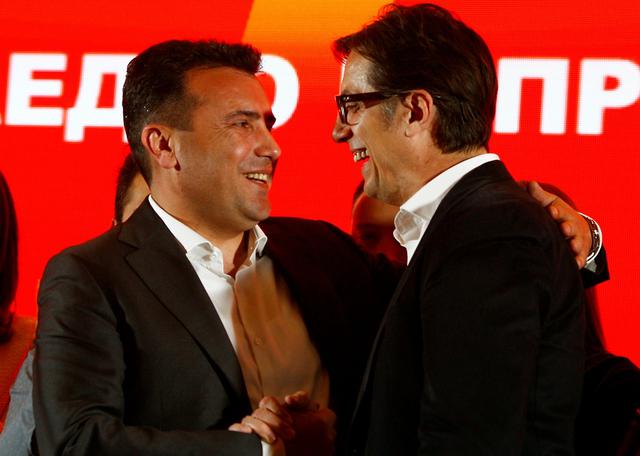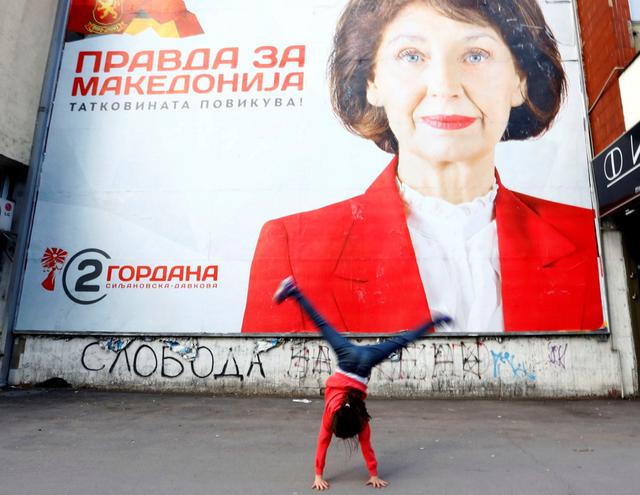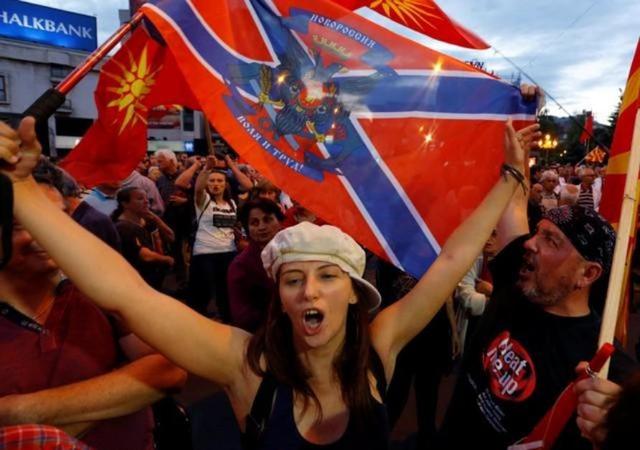
North Macedonia's presidential vote heads for runoff
Less than half the electorate of North Macedonia participated Sunday in the first round of the first presidential election since the European country . The turnout of 41 percent of the 1.8-million voters, given by the electoral commission, was the lowest recorded in the six presidential elections the former Yugoslav republic has experienced since independence in 1991.
With nearly all ballots counted, the candidates of the left and right were neck-in-neck and likely headed for a runoff vote on May 5. Stevo Pendarovski, 56, backed by the ruling left-wing government, was on 42.63 percent of the vote with rival Gordana Siljanovska-Davkova, 62, of the right-wing opposition on 42.39 percent. Belrim Reka, 59, from the country's ethnic Albanian minority, garnered around 11 percent, according to the preliminary results.

North Macedonian Prime Minister and leader of the ruling Social Democratic Union of Macedonia, Zoran Zaev (L), greets presidential candidate Stevo Pendarovski during a news conference in Skopje, North Macedonia, April 21, 2019. /Reuters Photo
The vote for the largely ceremonial post of president comes less than three months after a deal with Greece on the name change came into force, ending a decades-long identity dispute between the neighbors.
That cleared an obstacle for North Macedonia's ambition to . Greece, an EU state with veto power over new members, had objected to its neighbor being known simply as "Macedonia" because it has a province of the same name.
Analysts said the low turnout was down to disillusion among voters at the government's lack of progress in attracting foreign investment and tackling high unemployment.

A campaign poster of opposition presidential candidate Gordana Siljanovska-Davkova in Skopje, North Macedonia. /Reuters Photo
"We need a new and better president, a nation's father that will help move this country forward," said Sonja Kjurcieva, a 49-year old housewife from Skopje. "Together with the government they will bring us closer to Europe."
The presidency acts as the supreme commander of the armed forces and signs off on parliamentary legislation, but has no authority to block constitutional amendments that were passed earlier this year by a two-thirds majority of parliament to enable the name change.
Pro-Western candidate Pendarovski said the vote for how the country's future will be shaped rather than a choice of president.
Siljanovska-Davkova, a university professor, is supported by the nationalist VMRO-DPMNE party, which strongly opposed the deal.
"I am a professor of European law, so I'll respect [the agreement with Greece]," she said. "But I'll do my best to show that some of the solutions are against our constitution."

Protesters shout slogans against the change of the country's constitutional name in front of the Parliament building in Skopje, Macedonia, June 23, 2018. /Reuters Photo
Interior Minister Oliver Spasovski said late Sunday that the vote was peaceful and democratic.
"Our institutions have proven they can organize peaceful and democratic elections, fitting for the country that will join NATO soon and is on its way to becoming a member of the European Union," Spasovski said at a press conference.
According to North Macedonia's constitution, a victory in the first round can be achieved only by winning over 50 percent of votes. Otherwise, a second round will be held on May 5, when two most voted candidates will compete. The winner will be the candidate who has won the majority of the votes if more than 40 percent of the registered voters go to the polls.
(Cover: A combination image of North Macedonia's presidential candidatesStevo Pendarovski (L) and Gordana Siljanovska-Davkova. /CGTN Photo)
(APF & REUTERS)

